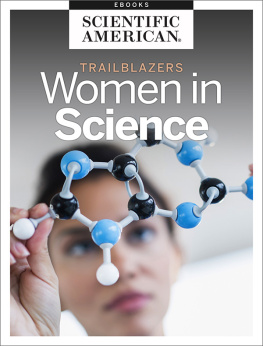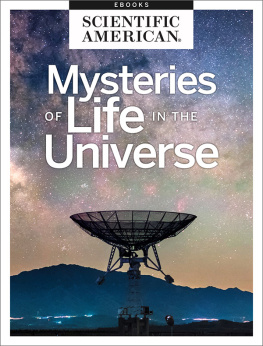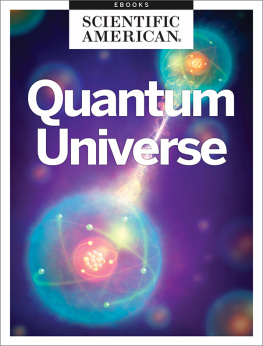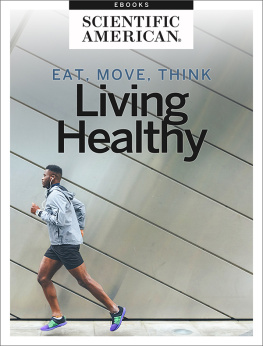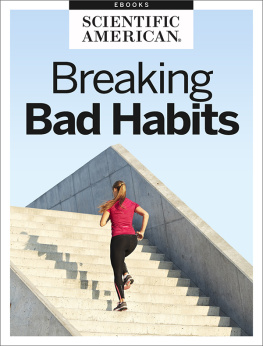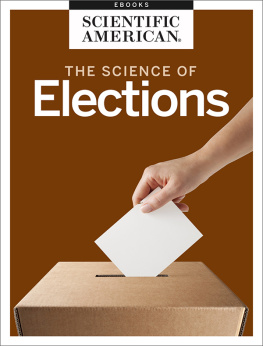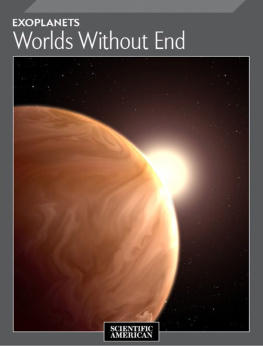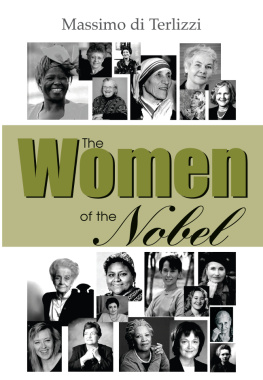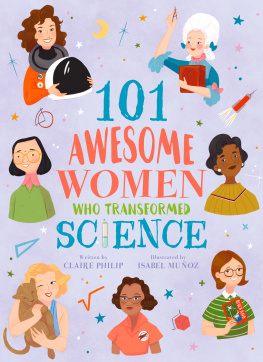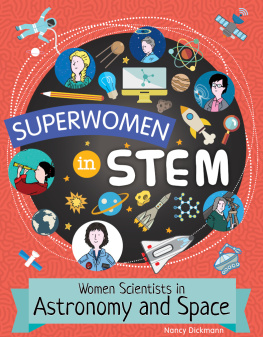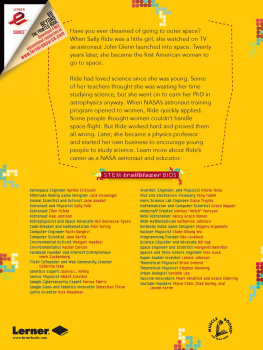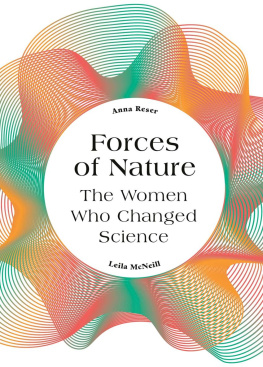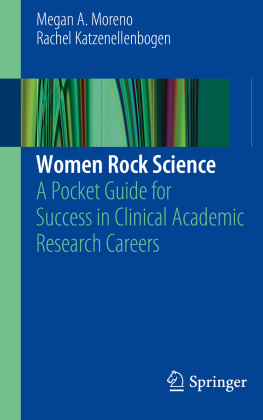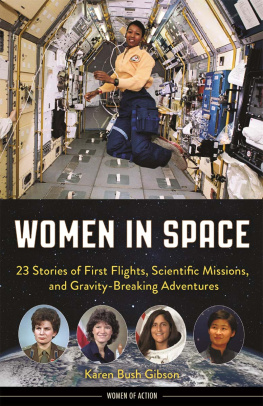TRAILBLAZERS:
WOMEN IN SCIENCE
From the Editors of Scientific American
Cover Image: JGI/Tom Grill/Getty Images
Letters to the Editor
Scientific American
One New York Plaza
Suite 4500
New York, NY 10004-1562
or editors@sciam.com
Copyright 2018 Scientific American, a division of Nature America, Inc.
Scientific American is a registered trademark of Nature America, Inc.
All rights reserved.
Published by Scientific American
www.scientificamerican.com
ISBN: 978-1-2501-2161-5


Trailblazers:
Women in Science
From the Editors of Scientific American
Table of Contents
Introduction
by Karin Tucker
1.1
by Florence Nightingale
1.2
by The Editors
1.3
by Vera C. Rubin
1.4
by Richard L. Hay and Mary D. Leakey
1.5
by William A. Haseltine and Flossie Wong-Staal
1.6
by Carol W. Greider and Elizabeth H. Blackburn
1.7
by Katey Walter Anthony
1.8
Interview by Kate Wong
1.9
by Kimberly G. Noble
1.10
by May-Britt Moser and Edvard I. Moser
1.11
Interview by Brendan Borrell
Trailblazers: Women in Science
Mae Jamison, France Cordova, Ada Yonath, Ruth Ella Moore, Barbra McClintock, Diane Fossey, Margaret Mead, Chien-Shiung Wu, Ada Lovelace, Sylvia Earle
"I never went into physics or the astronaut corps to become a role model. But after my first flight, it became clear to me that I was one." Sally Ride
Discoveries, innovations and contributions by women are seen and felt throughout the sciences. Though barriers to equality have always existed, curious and courageous women have persisted to make great discoveries and advancements to benefit humankind. As we celebrate the achievements of women in science, we acknowledge that equal opportunity and parity in employment and compensation still remain elusive. Women hold less than 25% of all STEM jobs (while women of color make up less than 10% of working scientists and engineers in the United States). Additionally, for every dollar earned by a man, women in STEM earn $0.86.
In this eBook, well explore the work of 11 trailblazing female scientists as published over the years in Scientific American. From Florence Nightingales professional take on the benefits of tea and coffee for ill patients to Flossie Wong-Staals examination of the genetic make-up of the AIDS virus, this collection covers a wide range of scientific discoveries in various fields. The scientists presented here include Nobel Prize winners (including Marie Curie, May-Britt Moser, Carol W. Greider and Elizabeth Blackburn) along with many others who have been the torchbearers in their respective fields. Just like Sally Rides experience, in simply doing their work, these women became pioneers and role models for all of us.
Roger Arliner Young, Franoise Barr-Sinoussi, Mina Bissell, Katherine Johnson, Mary Anning, Patricia Bath, Rosalind Franklin, Wanda Diaz Merced, Ruby Hirose
-- Karin Tucker
Book Editor
Tea, Coffee and Cocoa for the Sick
by Florence Nightingale
Too much is said against tea by wise people, and too much of tea is given to the sick by foolish people. When you see the natural and almost universal craving in English sick for their tea," you cannot but feel that nature knows what she is about. But a little tea or coffee restores them quite as much as a great deal; and a great deal of tea, and especially of coffee, impairs the little power of digestion they have. Yet the nurse, because she sees how one or two cups of tea or coffee restores her patient, thinks that three or four will do twice as much. This is not the case at all; it is, however, certain that their [sic] is nothing yet discovered which is a substitute to the English patient for his cup of tea; he can take it when he can take nothing else, and he often cannot take anything else if he has it not.
I should be very glad if any of the absent of tea would point out what to give to an English patient after a sleepless night instead of tea. If you give it at five or six o'clock in the morning, he may even sometimes fall asleep after it, and get, perhaps, his only two or three hours' sleep during the twenty-four. At the same time you never should give tea or coffee to the sick, as a rule after five o'clock in the afternoon. Sleeplessness in the early part of the night is from excitement, generally, and is increased by tea or coffee; sleeplessness which continues to the early morning is from exhaustion often, and is relieved by tea.
The only English patients I have ever known [to] refuse tea, have been typhus cases; and the first sign of their getting better was their craving again for tea. In general the dry and dirty tongue always prefers tea to coffee, and will quite decline milk unless with tea. Coffee is a better restorative than tea, but a greater impairer of the digestion. Let the patient's taste decide. You will say that in cases of great thirst, the patient's craving decides that it will drink a great deal of tea, and that you cannot help it. But in these cases be sure that the patient requires diluents for quite other purposes than quenching the thirst; he wants a great deal of some drink, not only of tea, and the doctor will order that he is to have barley-water, or lemonade, or soda-water and milk, as the case may be. Lehmann, quoted by Dr. Christison, says, that among the well and active the infusion of an ounce of roasted coffee daily will diminish the waste going on in the body by one-fourth;" and Dr. Christison adds that tea has the same property. Now, this is actual experiment. Lehmann weighs the man and finds the fact from his weight. It is not deducted from any "analysis" of food. All experience among the sick shows the same thing.
Cocoa is often recommended to the sick in lieu of tea or coffee. But independently of the fact that English sick very generally dislike cocoa, it has quite a different effect from tea or coffee. It is an oily, starchy nut, having no restorative power at all, but simply increasing fat. It is pure mockery of the sick, therefore, to call it a substitute for tea. For any renovating stimulus it has, you might just as well offer them chestnuts instead of tea.
An almost universal error among nurses is the bulk of food, and especially the drinks they offer to their patients. Suppose a patient ordered four ounces of brandy during the day, how is he to take this if you make it into four pints with diluting it? The same with tea and beef-tea, with arrowroot, milk, &c. You have not increased the nourishment, you have not increased the renovating power of these articles, by increasing their bulk; you have very likely diminished both by giving the patient's digestion more to do; and most likely of all, the patient will leave half of what he has been ordered to take, because he could not swallow the bulk with which you have been pleased to invest it. It requires very nice observation and care (and meets with hardly any) to determine what will not be too thick or too strong for the patient to take, while giving him no more than the bulk which he is able to swallow.

